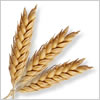Το καλάθι σας
 Canada: Independent studies support GroFeed barley benefits
Canada: Independent studies support GroFeed barley benefits
Mr. P. Henry Naskali, President and CEO of GroFeed Inc. stated on Janauary 24 the effort to provide independent scientific evidence to support GroFeed's claims, we monitor scientific studies and independent academic research." Mr. Naskali notes, "Taking all of the current research into account and the available data it becomes evident that the health benefits of organic feed are significant." In fact, the positive studies showed that organically fed animals had less illness, enhanced recovery from illness, better testes condition and greater sperm motility in males, greater egg production in females, better fertility, fewer still births and prenatal deaths, and better survival of young. These outcomes, reproduction, incidence, and recovery from illness, are sensitive indicators of health status, and should be given appropriate weight.
According to Dr. Virginia Worthington, MS, ScD, CNS, "We have seen a pattern of better nutrient composition in organic crops, better health in animals consuming organic food and the existence of known mechanisms explaining observed differences between organic and conventional crops. Whatever problems there may be with the quantity or quality of existing studies, the body of evidence, at a minimum, provides strong indications that organic crops are more nutritious." Dr. Worthington adds, "What is remarkable about all the studies is that the organically fed animals performed significantly better and no studies where the conventionally fed animals performed much better." For example, a recent study by Danish Institute of Agricultural Sciences examined supplementary organic feeds containing a high proportion of roughage. In three experiments, barley was compared with another type of supplementary feed: a concentrate mixture, grass pellets, or fodder beets. While the results indicated that the concentrate mixture resulted in a higher milk yield, a lower fat content indicating a lower quality of milk, and a higher ECM yield compared to feeding barley as supplement. Grass pellets resulted in a lower milk fat content, lower protein content, but no difference in milk or ECM yield compared to feeding barley. Fodder beet decreased the milk yield, ECM yield was lower, and milk was unaffected compared to the total mixed ration with barley.
GroFeed is committed to supporting qualified government or independent academic research incorporating barley fodder as a feed supplement through either direct funding and/or the commitment of product for performance evaluation, feed studies, health studies etc. According to Mr. Harry Lewis, GroFeed's Vice-President of Technology, "GroFeed is interested in supporting future studies that investigate barley's ability to improve animal health, increase immunity to disease, and promote human weight-loss maintenance by reducing insulin resistance.".
Πίσω





